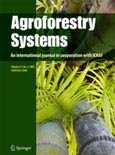Unanticipated events can cause considerable economic hardship for poor rural households. Some types of negative shocks, for example weather-related agricultural losses and vector-borne diseases, are expected to occur more frequently as a result of climate change. In this paper we measure the role of household- and location-specific characteristics in conditioning behavioural responses to a wide range of idiosyncratic and covariate shocks. We use data from 8,000 rural households in 25 developing countries, compiled in the global database of the Poverty Environment Network. We employ a hierarchical multinomial logit model to identify the importance of characteristics observed at different levels of aggregation on a set of strategies aimed at coping with economic shocks. Results indicate that in response to idiosyncratic shocks, households tend to deplete financial and durable assets, whereas covariate and thus often climate-related shocks predominantly result in reduced consumption. Households in sites characterised by high asset wealth tend to cope with shocks in a more proactive way than those in sites with average or below average asset wealth, but the role of asset types in conditioning shock responses varies across regions. Our findings have implications for rural development and climate change adaptation strategies.
DOI:
https://doi.org/10.1111/1477-9552.12097
Altmetric score:
Dimensions Citation Count:
























